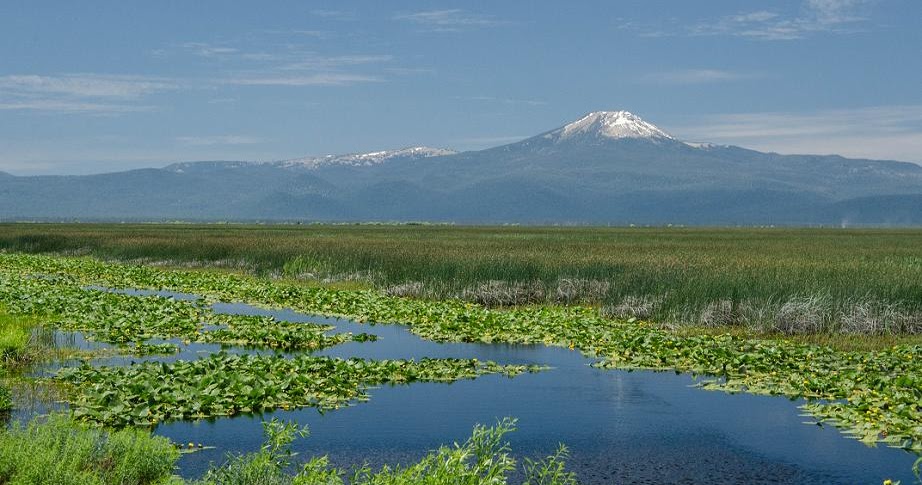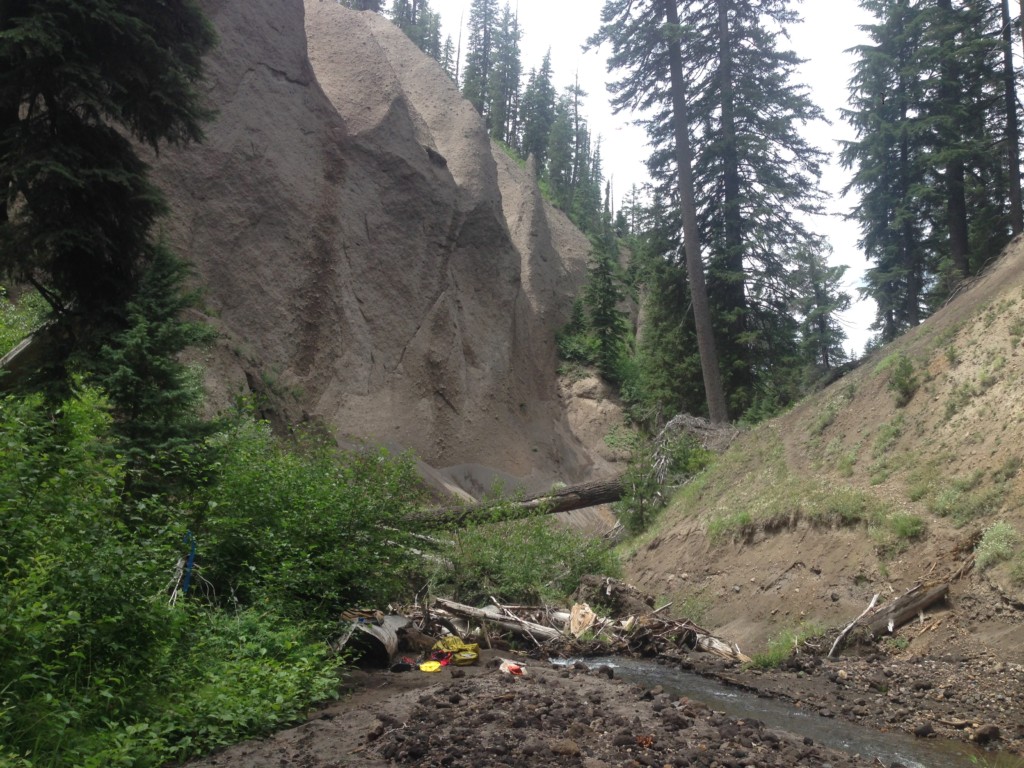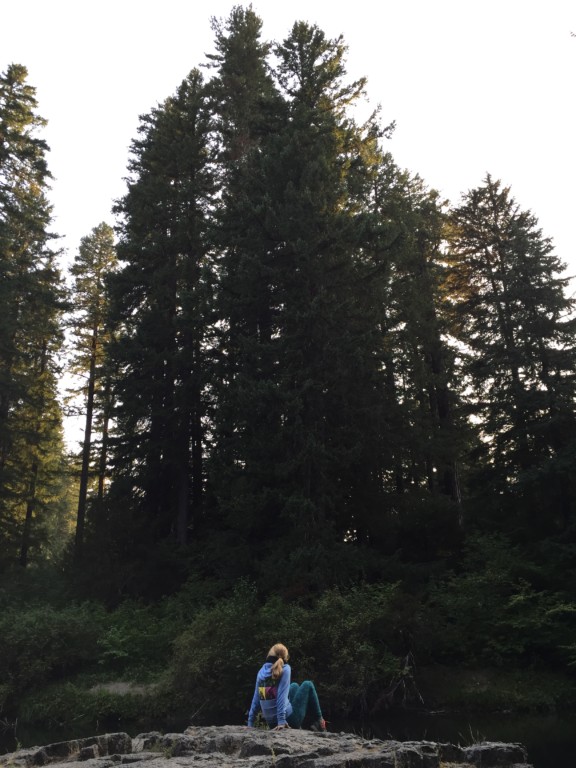(This is the 3rd and final post in my series on how I used experience and self-knowledge to find the perfect internship)
I had turned my proposal in and received my funding. Now I was ready to begin my first independent research project. A few weeks into the summer, Dave, my research advisor and mentor, picked me up at 5:00 AM sharp to make the hour and a half long drive from my home town to the park. Rain lashed across our windshield as we ascended a long and windy country road through evergreen forest. The rising sun was just visible, however, as we broke out of the trees and drove across glistening wetlands that border Klamath Lake. I knew, from that moment, that it would be a special summer.

The commute I made 2-4 days per week
I was conducting my study on a threatened species frog found in only in few areas around the Pacific Northwest, including the streams that feed into Crater Lake. This choice was as surprising to me as it was to my family– I had never before been overly zealous about amphibians, although while backpacking as a kid I had demonstrated great proficiency at catching tadpoles in my camping mug. However, just like that little kid, I was curious about nature and excited to be immersed in the outdoors. Incidentally, I had designed my research methods in a way that guaranteed an outdoor adventure.
My project involved mapping the population density of my frog. In order to do this, however, I had to randomize the coordinates for 30 study sites across all the streams throughout the Western half of Crater Lake National Park. To clarify: Crater Lake is a HUGE park of which the lake itself occupies only a relatively small portion. To access all of my study sites, I would have to hike miles through dense woods, rivers, and canyons; drive miles along bumpy dirt roads. My only guide was a GPS unit.
On that first day, Dave, and another member of Dave’s lab, a recent undergrad from Oregon State, and I spent hours hiking through a stream in waders, ice-cold water rushing around the tops of my thighs. Although we walked only a mile through Sun Creek, and I was exhausted. As we sat in the sun in a meadow next to the stream, eating our packed lunches, I dozed off.
Soon, Dave had other projects to work on. After all, I was just one member of his lab. I began driving up to Crater Lake alone several times per week, with an endless stream of podcasts and a killer Spotify playlist (Title: Crater Lake-in’) to fill the silence. The gorgeous drive was meditative for me, and I came to look forward to it. Sometimes, if I was too tired to drive home after a long day of work in the field, I would sleep under the stars and drive home the next day.
I didn’t always do the job alone. I assembled a hodge-podge crew of workers willing to volunteer their days to accompany me on a wild-goose chase through canyons and cold streams to look for tadpoles. Mainly, my helpers turned out to be high school aged boys looking for adventure and something to add to their resume. This, too, was a surprising highlight of my summer. I enjoyed getting to know a part of my community I wouldn’t otherwise have given much time.
My days always involved breathtaking sights, but they could also be uncomfortable and at times frightening. Once, one of my high-school helpers and I spent all morning trying 4 different routes trying to descend into a 500 foot canyon to our study-site. When we finally half-tumbled down a steep, forested ravine to get there, we began hearing thunder. A few times lightning cracked across the sky. It poured until our waders were filled with water and we were completely soaked. But that wasn’t the worst part. All day, I was terrified of a flash flood. Dave had warned me that these sometimes happened. The canyons around Crater Lake are deep, but the streams are tiny, and overflowed easily. If a flashflood were to occur, I wasn’t sure we’d be able to escape.
There was also the day I hiked 15 miles in 90 degree heat, through a shadeless forest of burnt tree snags, and another day when hiking alone, my GPS failed and I had to guess which direction to walk. Once, I was hiking with a friend along the side of a ravine when I stepped in a yellow-jacket’s nest, and then had to keep hiking. Towards the end of the summer, I found myself hiking with a bandana around my mouth, trying not to breathe in the fumes of the seasonal wildfires that raged just miles away.
But no matter how scary or uncomfortable the job got, I felt alive. And I felt I belonged. For the first time since beginning college, I had a concrete sense of direction. I wasn’t sure if I would ultimately end up working for a National Park, or even in wildlife biology. But something about my job at Crater Lake sparked a sense of passion within me. I had gotten everything I wanted out of the job– a new experience, community, and independence.
When I’m seeking out my future career, I’ll apply what I learned from both searching for and working at my Crater Lake internship. Hopefully, I’ll find something that brings me a similar sense of passion and fulfillment.






